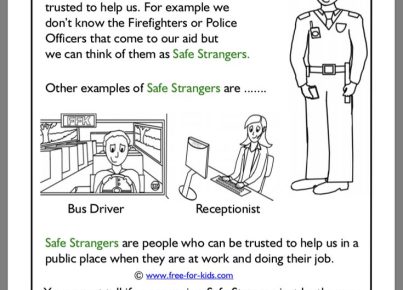Education plays a key role in shaping the future of tomorrow’s citizens. At the heart of this essential institution are our dedicated teachers who work tirelessly to ensure the best possible learning environment for their students. It is crucial, therefore, that we acknowledge and support the rights of these educators, which is where the concept of The Teacher Bill of Rights comes into play.
The Teacher Bill of Rights, while not legally binding, is a set of guidelines that aim to empower and protect educators in their pursuit of providing an exceptional learning experience. These rights serve as a reminder to schools, parents, and the community at large that a successful education system relies on maintaining a healthy and respectful relationship with its teachers. Here are some key aspects of The Teacher Bill of Rights.
1. Safe and Supportive Environment: Teachers have the right to teach in an environment free from physical harm, intimidation, harassment, or discriminatory behavior. Schools should take necessary measures to ensure their safety and well-being, both inside and outside the classroom.
2. Academic Freedom: Teachers should be able to exercise professional judgment in matters pertaining to curriculum choices, teaching methodologies, and student assessment without external interference or political pressure.
3. Access to Resources: Educators must be provided with all necessary teaching materials, equipment, technology, and support staff to create conducive environments for effective teaching and learning experiences.
4. Compensation and Benefits: Teachers deserve fair wages commensurate with their skills and experience, along with access to comprehensive benefits packages that include health insurance, retirement plans, paid time off, or maternity/paternity leave.
5. Collaboration Opportunities: Teachers should have ample opportunities for professional development through mentorship programs, training workshops/seminars/webinars or access to conferences in their field.
6. Respect for Work-Life Balance: A teacher’s personal life should be respected by their school community. This means reasonable expectations surrounding workload, teaching hours, and clearly defined vacation periods.
7. Inclusion in Decision-Making: Teachers should have an active role in shaping the policies and decisions of their schools and the districts they serve. They should be consulted and given the opportunity to contribute meaningfully to decision-making processes at all levels.
8. Recognition of Accomplishments: Celebrating a teacher’s professional accomplishments, personal growth, and contributions to their students and the school is crucial to boosting morale and fostering a sense of belonging within the educational community.
9. Protections against Unfair Treatment: There should be mechanisms in place to protect teachers from unjust dismissals, evaluations, or unfair treatment in general. These mechanisms should guarantee transparency and fair processes for evaluating teacher performance.
10. Parental Support & Respect: Lastly, parents must understand that teachers act as their partners in educating their children. Therefore, it is essential that they demonstrate respect for teachers’ authority in the classroom by fostering positive communication, collaboration, timely feedback, and supporting their decisions.
In conclusion, The Teacher Bill of Rights serves as a reminder that teachers are not only professionals but also human beings who deserve respect, recognition, support, and protection. By sharing this message with everyone we know, we can contribute to creating an educational environment that values its educators and recognizes their immense contribution toward building a better future for our next generation.





